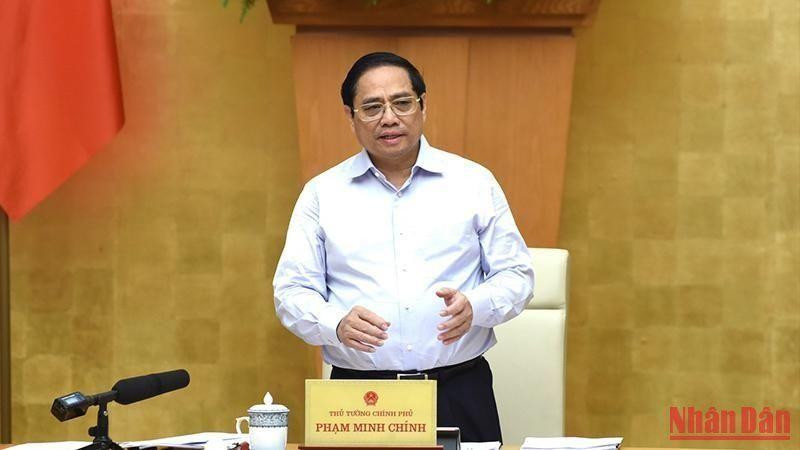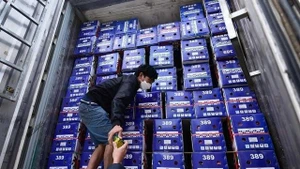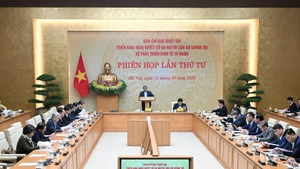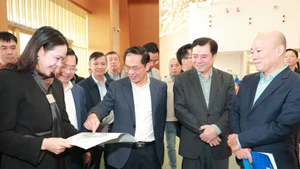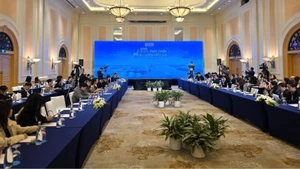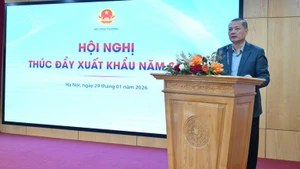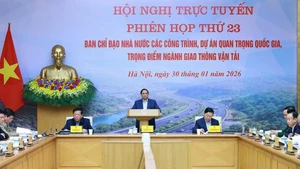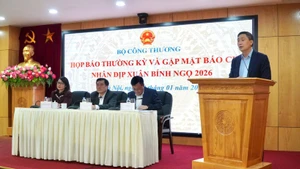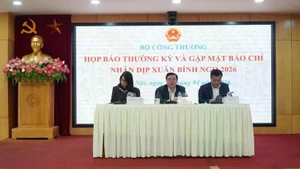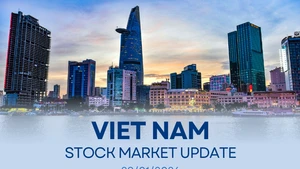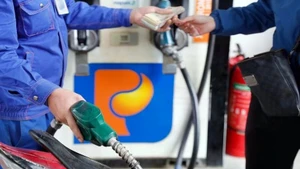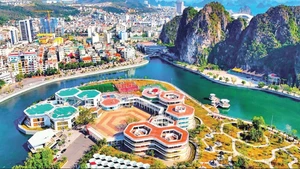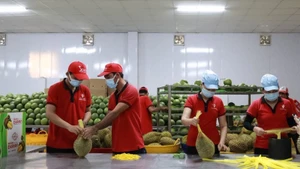He made the request while addressing the Government’s teleconference with the 63 provinces and cities nationwide and the Cabinet’s regular meeting for September on October 1.
The Ministry of Planning and Investment reported that positive signs were seen in most socio-economic aspects in the first nine months of the year. The macro-economy remained stable, inflation was under control, major balances ensured, and monetary and fiscal policies implemented in a proactive, flexible, and effective manner.
Year-on-year GDP growth was estimated at 13.67% in the third quarter and 8.83% in the first nine months, the fastest nine-month pace during 2011 - 2022. Production and business activities have gradually regained momentum. The Government’s socio-economic recovery and development policy has proved effective.
The consumer price index (CPI) posted a year-on-year increase of 3.32% in Q3 and 2.73% in nine months, while the core inflation rose 1.88%.
Between January and September, State budget collection reached 94% of the target, up 22% from a year earlier; total social investment topped 2.1 quadrillion VND (nearly 88 billion USD), up 12.5%; and foreign trade turnover reached 558.52 billion USD, up 15.1%, with a trade surplus of about 6.52 billion USD. Implemented foreign direct investment grew 16.3% to 15.43 billion USD, the highest nine-month figure over the last five years, statistics show.
Cultural, social and environmental issues, along with natural disaster and climate change response, have also received due attention, the ministry said.
PM Chinh said despite considerable, fast, complex, and unpredictable changes in the global situation, thanks to efforts by the entire political system, people, and businesses, Vietnam has managed to obtain encouraging socio-economic results. International organisations also made positive assessments of the country’s socio-economic situation and issued optimistic forecasts for its economic growth, which is expected to be among the highest in Southeast Asian in 2022 and 2023.
However, he also pointed out latent risks to macro-economic stability and inflation control; sluggish implementation of the national target programmes and public investment disbursement; high input costs for production and business activities; the shortage of medicine and medical supplies in some hospitals and localities; the complex COVID-19 situation and slow vaccination; difficulties facing certain groups of people, especially in remote and ethnic minority areas; and increasing damage caused by natural disasters.
The PM underlined the importance of the last quarter, which is the time to “sprint” toward the “finishing line”, requiring the Government, sectors, and all-level authorities to show stronger determination and efforts to carry out the tasks identified by the Party, National Assembly and Government to achieve the best possible socio-economic results for 2022 and create a driving force for next year.
He ordered the COVID-19 prevention and control programme be pushed ahead, with vaccination to be sped up, and the shortage of medicine and medical supplies be addressed.
He asked for persistence in the target of sustaining macro-economic stability, controlling inflation, promoting growth, and ensuring major economic balances. Besides, it is also necessary to tighten management of prices of essential goods and services, keep a close watch on the regional and international situation while boosting analysis and forecasting in order to take timely and appropriate actions.
The Government leader highlighted the need to continue perfecting regulations, step up administrative reforms, ramp up the fight against corruption and negative phenomena, train high-quality human resources, and encourage scientific and technological application, innovation, digital transformation, green and circular economy development, and energy transition, which he said will create foundation for improving the economy’s productivity, quality, efficiency, competitiveness, and sustainable development.
He also told ministries, sectors, and localities to pay due attention to cultural, social and environmental issues, natural disaster and climate change response, defence and security safeguarding, diplomacy, and communications to promote consensus in the public and refute wrong and hostile viewpoints.
